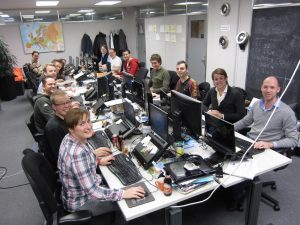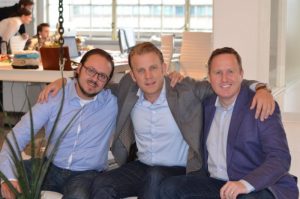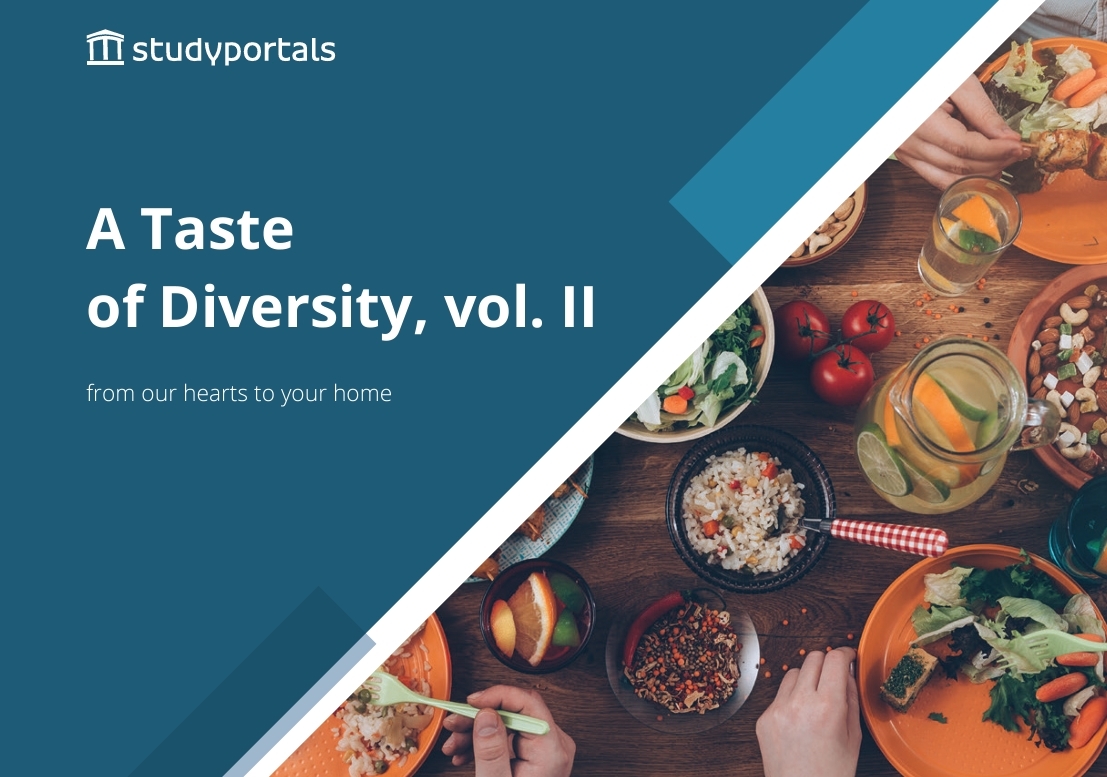Studyportals and the mission to make study choice transparent, globally – Part 1
Many young people have ambitious ideas for making the world a better place. Turning those ideas into reality, however, requires leaps that only few of us dare to take. Edwin van Rest embodies exactly the kind of enthusiasm for this initiative, now being the CEO and co-founder of Studyportals.
His journey started ten years ago, aiming to bring transparency to global study choice options and motivating other students to study abroad. He strongly believes that this opportunity enables students to contribute to something that the world needs now more than ever: a more connected, tolerant, and equal world. Today, Studyportals is the biggest global study choice platform, bringing students and universities together from all over the world. To address the importance of international higher education and inspire other young social entrepreneurs, Edwin shares his personal journey to achieve his social mission, and the route the company took to become what it is today.
Before Studyportals was founded, the fundamental ideas for a future company emerged during Edwin’s student years. At the time, studying abroad was a mandatory component of the Industrial Engineering programme at the University of Technology in Eindhoven — a feature of which Edwin was thrilled to take advantage of.
“I was always interested in international adventures and meeting different people,” Edwin says. “It’s something I truly enjoyed when travelling with my parents, and it didn’t take me long to join an international study association, enabling me to organise conferences with other students around the world.”
Eventually, Edwin’s study abroad journey brought him to Japan — a learning experience that left him with fond memories, both embarrassing and gratifying ones.
A Dutch guy in Japan — an unavoidable culture clash
“I was raised a typical Dutch guy. Very social and direct”, Edwin says. “I thought I was going to be okay, but instead, I was hit very hard. I stayed at a dormitory for international students, and I remember my first week trying to get to know the other students. However, back then in Osaka, international students were mostly from China or Korea, barely speaking any English. I was trying to say ‘Hi’ to everybody, but people just kept on walking. No one wanted to talk to me! Pretty soon I was thinking, ‘what did I get into with my stupid ambitions? I need to go home’. But I persisted and ended up staying for 13 months. The Japanese people took really good care of me, and I had a wonderful time.”
Apart from his early social experience, Edwin also soon encountered differences on a cultural level. While most Dutch people tend to be very straightforward, believing that maintaining explicit, direct communication is the best way to connect, the opposite seemed to be true in Japan.
“I must have pushed so many Japanese people over the edge”, Edwin jokes, “but thankfully, they are also very forgiving”.
After a while he noticed that meetings don’t take longer in Japan, companies are not less effective, and people are not learning slower. There are a lot of ways to communicate effectively, and he soon realized that his own preconceptions about communication stemmed from one limited perspective.
During his stay in Japan, Edwin visited a host family several times a month.
“It was really fascinating and heartwarming to learn about the Japanese family life”, he adds. “Generally speaking, I feel like the Japanese people are much more reserved and have a more closed culture. Maybe because it’s an island and because of some political policies from the past. Their word for foreigners is literally ‘alien’; and being accepted as a valued member of a Japanese family and starting to relate on a deeper level was probably one of the best experience during my stay in Japan.”
Looking back, the experience compelled Edwin to learn a lot about his own culture and see things from a much broader perspective. He realised how a harmonious exchange with other cultures, and actually becoming part of the community, changed his viewpoints.
Edwin is convinced that, to make our world a little bit better, more people should have similar experiences. He saw that bringing cultures together can empower people to better understand each other, benefiting not only people individually, but also the community around them, strengthening the economy and the capacity for tolerance, understanding, peace and happiness.
The defining moment for ‘Mastersportal.eu’
After Edwin shared his study abroad adventures with his friends, many of them were convinced that, if they had known about what it has to offer, they would have done their studies completely different. That’s when he decided to devote his energy to making every student at least aware of the opportunities to study abroad. Sharing the experience and motivating future students around the world to do the same was the primary belief on which Studyportals was based.
The introduction of the Bologna process in 1999, which for engineers split a five-year integrated study into a Bachelor’s and Master’s programme, certainly sped up the process for the beginning of the company. Due to the Bologna Process, however, previous mandatory exchange programmes were suddenly eliminated, as universities could not guarantee the quality of a Master’s degree anymore if one year was spent abroad. Therefore, students who really wanted to gain academic experience in another country had to follow an entire Master’s programme at a foreign university instead.
According to Edwin, this is where a problem arose: there was no information available for discovering all those emerging master’s programmes! The only thing students could do was browse websites of universities that they happened to already know of (and, even then, only half of the information students needed was available). Many students expected that, eventually, a big publisher was going to step into the market and solve the problem. Edwin and other members of the study association waited 6 months, and 12 months — until eventually they realized: nothing was happening. They had to take the steps into their own hands.
“The idea was there”, Edwin says, “but the moment where I decided to actually do something about it came was when I visited Magnus in Stockholm”.
As a former student, Magnus was also a member of the study association ESTIEM and is now one of the co-founders of Studyportals.
“I remember us having a drink. I was explaining the idea to him — the frustrations and about how it should be solved”, says Edwin. “However, in my head, it was still going to be solved within the context of the study association. Magnus, though, had already started a business and said, ‘if we want to do this well, we can’t rely on volunteers, we need to start a company’.” As Magnus’s company was mainly operating during warmer seasons, he said: ”winter is coming and I have time. Let’s go for it!”
Edwin adds, “That was really the defining moment”.
A pivotal moment occurred during the time Edwin was getting ready to graduate and when he was already receiving job offers. However, he didn’t want to work for a standard multinational, consulting company, or a bank. He instead wanted to find out if he could have a positive impact on the world, developing a platform that makes study choice transparent, globally. That’s when Magnus and Edwin went looking for someone with good IT knowledge. Thijs was the perfect candidate. He was the leader of the IT committee for the study association, and he, too, shared this vision for shaping a better future through education. Thijs had the wherewithal, the skills, and the ambition that Edwin and Magnus sought in a co-founder. One day, when the three of them were having lunch, they asked Thijs whether he knew someone who might be interested in the job.
Thijs did have someone in mind, unexpectedly responding with, “I would love to be doing this with you!”, instantly becoming the third co-founder of Studyportals. “Then we just got a couple of beers and started to work”, Edwin said. Not much later, mastersportal.eu was brought to life, where students were able to search for Master’s programmes across borders. The rest is history.
For more updates, follow us!







